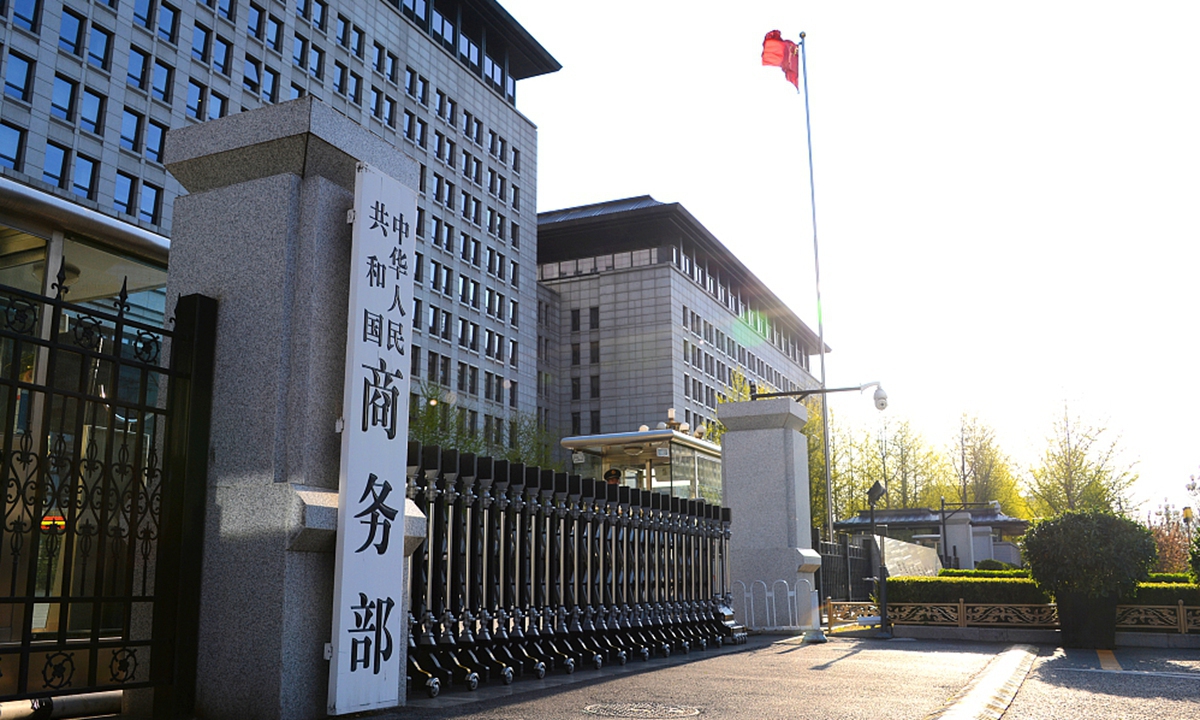(来源:Global Times,20204-05-30)

The Ministry of Commerce Photo: VCG
China's Ministry of Commerce (MOFCOM), the General Administration of Customs and the Equipment Development Department of the Central Military Commission issued a joint notice on Thursday, announcing export controls on certain equipment, software and technologies in key sectors ranging from aerospace to shipbuilding that matter to national security.
This decision was made to better safeguard national security and the interests of the country, while fulfilling international obligations such as non-proliferation, according to the notice.
The new policy will take effect on July 1.
Chinese experts said that the policy is based on laws and regulations for securing the interests of the country. China's export control measures are law-based, which means that they are different from the relentless moves of countries such as the US in expanding their control lists to crack down on others while ignoring international laws and regulations.
Export controls do not mean that the corresponding products cannot be exported, as long as exporters apply properly for permission and pass the review, experts noted.
Under the new policy, the controlled export products involve equipment and software in key industries, including aerospace structural components and engine manufacturing, gas turbine engine manufacturing, aerospace surface window-related equipment, and ultra-high molecular weight polyethylene fiber-related items, according to the notice.
In response to media questions regarding the policy, a MOFCOM spokesperson said on Thursday that it is an international practice to control exports of such items.
China is following this international practice and implementing export controls on relevant materials and items, according to its own development needs, to better safeguard national security and fulfill international obligations such as non-proliferation.
Exporters should handle export licensing procedures in accordance with relevant regulations. They should submit applications to the provincial commercial departments, and the MOFCOM should review the applications or conduct reviews together with relevant government departments.
The decision to grant or refuse permission should be made within a statutory time limit.
Anyone who exports these products without permission, exceeds the scope of permission or engages in other illegal activities shall be subject to administrative or criminal penalties in accordance with relevant laws and regulations.
The spokesperson said that the Chinese government is firmly committed to maintaining world peace and regional stability, ensuring the security of global industrial and supply chains, and promoting the development of compliant trade.
China opposes any country or region using controlled items from China to engage in activities that undermine China's national sovereignty, security or development interests, the spokesperson noted.
The control measures are primarily based on China's national security needs, which is reasonable and lawful, experts said.
China leads the world in some technologies. Due to the advanced and sensitive nature of these technologies, it is important to avoid the risks of the corresponding technologies and items being used in ways that affect China's security but also that of others, Song Guoyou, a deputy director of the Center for American Studies at Fudan University, told the Global Times on Thursday.
While the US-led West is tightening export control measures against China, with the list growing longer, it affects related industries in China. However, China's approach is entirely different from that of the US, experts said, noting that the MOFCOM also stated that exports meeting relevant regulations will be permitted.
China adheres to international norms and domestic laws and manages them reasonably, Song said.
China has competitive advantages in the production of large structural items in areas such as aerospace and shipbuilding.
Prioritizing production capacity for export orders may result in being unable to meet domestic demand. Therefore, ensuring domestic supply is crucial, especially for such critical areas as manned spaceflight that are vital for national security and technological development, Wang Yanan, chief editor of Beijing-based Aerospace Knowledge magazine, told the Global Times on Thursday.
The decision to export a certain product depends entirely on the country's own needs, which is within its sovereign rights and doesn't involve violating international laws, Wang noted.

